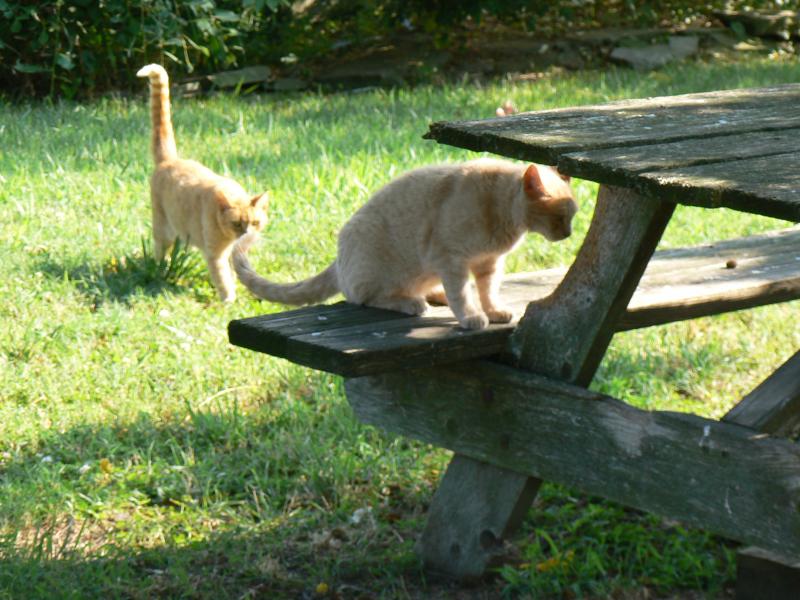Lewes officials are working to revise an outdated ordinance that covers the handling of feral cats and colonies.
Though not yet adopted, the draft ordinance removes any language related to euthanasia and encourages feral cats be humanely trapped and taken to a no-kill shelter for spaying or neutering.
Councilman Rob Morgan has been working with Brandywine Valley SPCA to draft the ordinance, which is similar to an ordinance adopted in Rehoboth Beach.
Morgan and the SPCA disagree on one point. After a cat is trapped and sterilized, Morgan does not want the feline returned to the area where it was trapped. He said it should be taken elsewhere.
Allowing a neutered cat to return to its colony, discourages people who do not want feral cats in their neighborhood from trapping a cat and taking it to a shelter to be sterilized only to have it put back, Morgan said.
He also notes state code prohibits feral cats from being relocated to a migratory bird flyway. Although it doesn’t ban the returning of a cat to an area, he said, the spirit of the law is to protect migratory birds from cats.
Walt Fenstermacher, director of operations at Brandywine Valley SPCA, says all trapped cats brought to his organization’s shelters are assessed for adoption. If they are friendly and easily handled, they will be put up for adoption. If the cat is fractious, he said, it is released back into the wild as soon as possible for the safety of the cat and anyone who may handle it at the shelter. In most cases, the shelter returns it to the area where it was living.
If cats are not returned to a specific area, he said, it is difficult for the SPCA to help control a population, specifically if they are living on private property and the property owner cares for the cats.
“They’re cat lovers and they don’t want anything bad to happen to the cats; they don’t want to see them disappear,” Fenstermacher said. “They want to continue to care for their cats if they are able to.”
He said if property owners are told all of the feral cats will be removed and none will return, they’d likely refuse SPCA’s help.
Resident Brook Hedge said the no-return measure is likely unenforceable. Morgan said it wouldn’t preclude someone from adopting the feral cat and bringing it back to Lewes, but only releasing it back into the wild within the city limits.
Hedge said cats often make their way back no matter how far away they are taken, so it’s likely some cats will come back anyway.
“My neighbor died years ago, and she had three cats,” she said. “The heir took the cats to a farm in Georgetown, a good 10 to 12 miles away. One by one those cats made it back to the back porch.”
Resident George Terrell said permanently removing cats from a colony is a bad idea.
“Putting a sterilized cat back stabilizes the population,” he said. “You take away a cat, another one is simply going to move in. They’re colonizers. If you have a bunch of sterilized cats, the population will become stable because they will defend their territory from other cats trying to come in.”
Council did not resolve the no-return issue and will revisit the ordinance at a future meeting.
Nick Roth is the news editor. He has been with the Cape Gazette since 2012, previously covering town beats in Milton and Lewes. In addition to serving on the editorial board and handling page layout, Nick is responsible for the weekly Delaware History in Photographs feature and enjoys writing stories about the Cape Region’s history. Prior to the Cape Gazette, Nick worked for the Delmarva Media Group, including the Delaware Wave, Delaware Coast Press and Salisbury Daily Times. He also contributed to The News Journal. Originally from Boyertown, Pa., Nick attended Shippensburg University in central Pennsylvania, graduating in 2007 with a bachelor’s degree in journalism. He’s won several MDDC awards during his career for both writing and photography. In his free time, he enjoys golfing, going to the beach with his family and cheering for Philadelphia sports teams.





















































